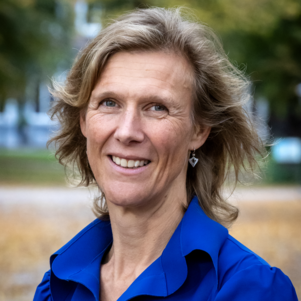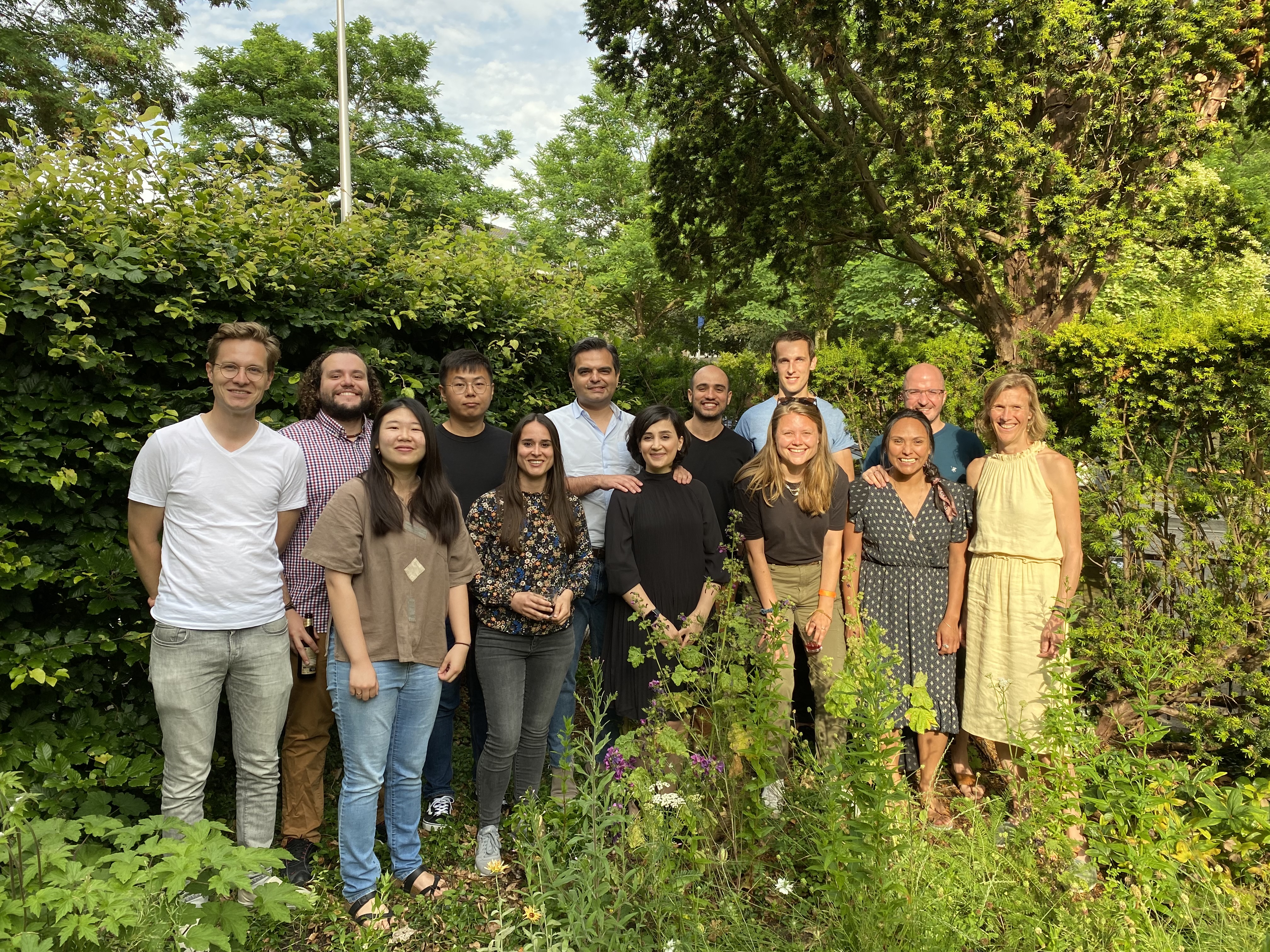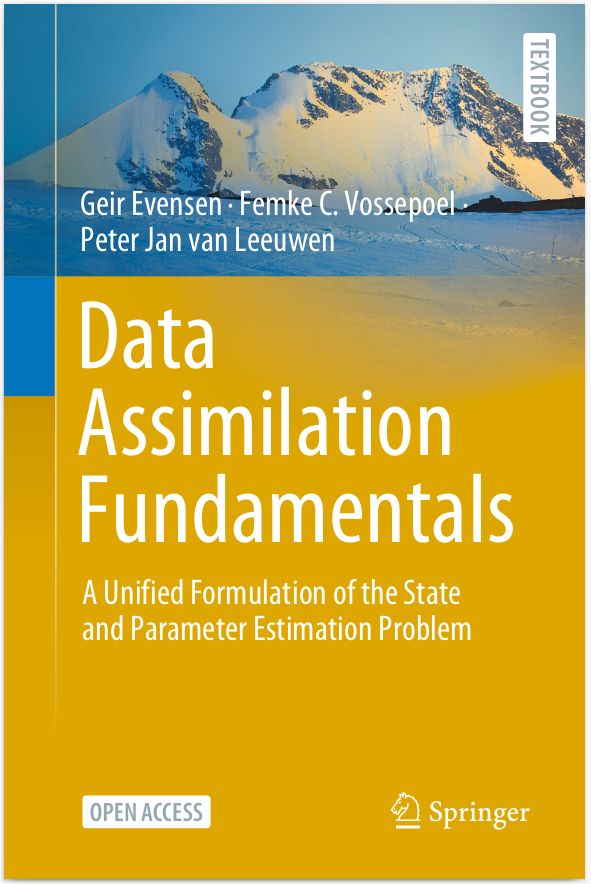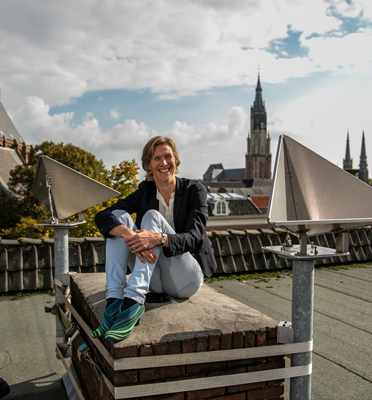Dr. Ir. F.C. (Femke) Vossepoel
Profile
As an Associate Professor at Delft University of Technology, Femke Vossepoel leads a research group of six PhD students and one post-doc in data assimilation research in the geosciences. The group’s projects involve the use of geodetic and geophysical observations for estimating state and parameters in dynamic models. Research topics include subsidence due to gas- or groundwater extraction, the estimation and forecasting of earthquakes, and slope stability.
With a background in oceanographic data assimilation and coupled ocean-atmosphere simulation, combined with industry experience in reservoir engineering and exploration geophysics, Femke Vossepoel connects different disciplines and reaches a broad audience. In 2022, together with Geir Evensen and Peter Jan van Leeuwen, she published an open access text book on data assimilation fundamentals.
From 2020-2023, Femke Vossepoel was the head of the reservoir engineering section in the department of Geoscience and Engineering of TU Delft. With a keen interest in safety and climate resilience, Femke Vossepoel is also a member of the management team of the Delft Safety and Security Institute. She is also a member of the Technical Committee for Ground Motion (Tcbb) and the international KEM expert subpanel that advices the Ministry of Economic Affairs and Climate Policy on the risk of ground motion and induced seismicity. Femke Vossepoel coordinates the TU Delft contribution to Destination Earth (DestinE), an EU programme to build a digital twin of the earth.
Femke Vossepoel substantial funding from the Dutch Research Council NWO through the DeepNL research programme that is aimed to improve the fundamental understanding of the dynamics of the deep subsurface under the influence of human interventions. The User Support Programme Space Research of NWO funds three of her current projects involving satellite data. For two projects, the funding comes from Delphi and Petrobras.
Femke Vossepoel’s interests are not limited to data assimilation in geosciences. In recent years, she contributed to an international assessment of the COVID pandemic. Having experienced the value of working in diverse groups, Femke Vossepoel is a strong supporter of gender equality and an active member (and former chair of the board of) DEWIS.
Team of PhD candidates and postdocs working with Femke Vossepoel.
- Data assimilation, in particular Monte Carlo-based methods
- Surface motion: subsidence and seismicity
- Uncertainty quantification and risk assessment
Femke is keen to use data assimilation as a tool to better understand subsurface processes and their consequences at the surface through combination of surface data with coupled dynamic-mechanical simulators of the subsurface. Applications include, but are not limited to, the use of gravimetry and satellite observations, for instance GPS and InSAR, for surface movements related to subsurface processes such as water production, geothermal energy, hydrocarbon production, gas injection and storage, and resource mining.
Particle filtering, a Monte Carlo-based data assimilation methodology, has Femke’s particular interest. She is developing filters for the combination of data types with varying spatial and temporal resolution and information content (e.g., seismic, well data, electro-magnetic data). Another area of active research is the joint estimation of state and parameters using data assimilation, particularly in coupled systems.
With a MSc degree in Aerospace Engineering from TU Delft (1995), Femke obtained her PhD degree at the same faculty in 1999, in collaboration with the Institute of Marine and Atmospheric Research Utrecht (IMAU) of Utrecht University. During her PhD project, she was awarded a Fulbright fellowship, which allowed her to spend a year as a visiting scientist at the National Oceanic and Atmospheric Administration (NOAA) in the Washington D.C. area, and as a Fulbright student at the University of Maryland, USA. As part of her PhD project, she developed a data assimilation module to assimilate satellite-borne radar data into a global ocean circulation model to improve the estimate of salinity variability in the Pacific Ocean, leading to improved NOAA forecasts of the El Niño climate phenomenon. Part of her PhD research was carried out at the Royal Netherlands Institute for Meteorology (KNMI).
Awarded with an individual Marie Curie research grant in 2000, she spent two years on data assimilation in coupled ocean-atmosphere models at the Laboratoire d’Océanography Dynamique et de Climatologie of Université Pierre et Marie Curie in Paris, France. Until 2007, she continued her research in the field of data assimilation at IMAU, while funded by SRON Netherlands Institute for Space Research, a division of the Netherlands Organisation for Scientific Research NWO. In that period, she specialized in the use of particle filtering techniques for the estimation of the global ocean circulation using gravity-gradiometry observations of the GOCE satellite.
These twelve years in research were followed by almost ten years in industry with Shell International Exploration and Production. In this period, she applied her expertise in the field of data assimilation in assisted history matching for closed-loop reservoir management, and in the integration of seismic and non-seismic data for exploration and reservoir characterisation. She also led opportunity evaluation in unconventional resources and portfolio analysis in Shell’s business planning.
In September 2016, Femke was awarded a Delft Technology Fellowship, which enabled her to return to TU Delft to take up the position of Associate Professor in the Department of Geoscience and Engineering in the Civil Engineering and Geosciences faculty. In this position, she continues to build her research portfolio in data assimilation.

Femke Vossepoel
Associate Professor
- +31 15 27 87173
- F.C.Vossepoel@tudelft.nl
-
Faculty of Civil Engineering and Geosciences
Building 23
Stevinweg 1 / PO-box 5048
2628 CN Delft / 2600 GA Delft
Room number: 3.18


